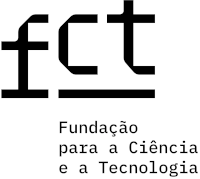Subjectivity and Criminal Liability – The mental/subjective elements in the conceptualization of crime (or the subjective elements of criminal behavior)

Research projects
Main Researcher: Maria Fernanda Palma
Research team: António Brito Neves, Bárbara Sousa e Brito, Catarina Abegão Alves, Luísa Alves, Mafalda Moura Melim, Maria Fernanda Palma, Nuno Igreja Matos, Ricardo Tavares da Silva, Rita do Rosário, Vanessa de Biassio, Vanessa Pelerigo, Wagner Marteleto Filho
Project Status: Ongoing
Description
This research project focuses on the relationship between subjectivity and the main categories of criminal law, as well on the identification of argumentative processes, in judicial decisions, that involve mentalistic concepts.
Goals
The law bases responsibility on behaviours that involve the total expression of the person and that integrate, more or less accentuated, mentalistic references, such as killing, kidnapping, violating, stealing, etc. In general, these mental aspects and external behaviour are not separable but integrate each other in behaviour, so that in the objectivity of behavioural fact, the subjective-mental moment is integrated.
In the philosophical tradition, these statements raise the opposition between a conviction in which the mental-subjective coexists or even causes the external-subjective, although of different nature or quality, the spirit ex machina, of the Cartesian dualist tradition, and another conviction, absolutely monistic, in which mentalistic moments are mere interpretations of a single external and objective behaviour, in which ontologically one could not recognize any true autonomous internal and subjective moment.
This confrontation between various descriptions of reality does not mean that there is not something unique and specific to be described or to be described as subjective or mental; there will only be a divergence as to the being of this quid. This divergence about the “ontos” of the object of knowledge will have consequences on the conclusion of what happened or manifested itself. It will not be the same, it will be another dimension of the fact, a mere intersubjectively attributed meaning or even a communicational function dependent on a practical need – that is, in this case, an onto-objective nothingness, but only a communicatively usable something for mutual understanding, but which integrates into lived experience as consciousness, will or intention.
How can Law account for its role or even resolve this uncertainty resulting from philosophical discussion? Will it have to do it? Is it acceptable for Law to recreate the communicational aspect of subjectivity of behaviour with absolutely autonomous criteria, for example, just because it is useful for certain purposes, a systemic or teleological functionality? Or will Law have to refer to this ontological subjective and real moment, even objectively real?
Is the answer arbitrary, convenient or a matter of opinion?
Is it prudent to solve as much as possible the epistemological problem of the subjective moment, or to verify the conditions of its solution so as not to build the theme of content and sense of legal conceptualization’s object on clay feet as in the mythological allegory about truth?
Is there, after all, something objective, cognizable, and identifiable in the subjective quid of behaviour regardless of a constructed and attributed meaning either from a sociopsychological perspective or from a pure language perspective à la Wittgenstein?
Some minimum answers are pertinent, namely:
- There is a common or shared experience of the subjective from which we identify ourselves, recognize ourselves and communicate with each other, being therefore at least a logical condition of knowledge (phenomenology, symbolic interactionism, etc.)
- There is in certain behaviours a moment of project and conscious reflection precedes and corresponds to the external-objective realization
- The non-autonomization of this subjectively lived quid and the hypothesis of its arbitrary function is not only counterintuitive but collides with any coincidence between promoting social agents/people’s accountabilityand Law’s liability
- The belief in a myth of subjectivity and the possibility of promoting this same subjectivity in articulation with others’ is a survival need for social systems themselves as constructive criticism.
From this point on, and without uncritical pre-understandings, it becomes possible to look for in Criminal Law itself and also in Civil Law a role for subjectivity delimiting and identifying behaviours.
The next step will be to know how this role has been practically conceived and how it should be built and practiced according to an inter or even extra systematic epistemological foundation. The common general question about the epistemological conditions in articulation with the Law is divided into the following particular purposes of this Research Project:
- Modes of objectification of subjectivity in Criminal Law: history, case-Law and jurisprudence; critical analysis – accentuation of the reference to subjective experience in opposition to the schematic reduction of this topic or to its mere connection with common language, common sense, accepted patterns in ethical terms
- Modes of knowledge and evidence of subjective moments or elements
- Possibility of using other sciences: neurosciences, psychology, sociology, criminology: formulation of bridge laws or translation criteria
- Methodological valorisation of an analysis with this framework in confrontation with the methodology of traditional dogmatic type
- Need to formulate generalizable answers, from the comparison of the function in each theme of subjective elements
- Great implication, for the crime definition and analysis’ system, of the relationship between the subjective and the objective: oppositions between a supposedly subjectivist theory of crime and an objectivist one and influence of the content and definition of the subjective on the other elements of crime
Activities
Research Seminar, mensal (from December 2021 to May 2023) – closed stage:
- “Subjectivity”, by Ricardo Tavares da Silva, December 2021
- “Logical consequence models”, by Ricardo Tavares da Silva, January 2022
- “The good-faith of the whistleblower: subjective or objective?”, by António Brito Neves, February 2022
- “Mental Causation”, by Wagner Marteleto, March 2022
- “How we Hate in Court: an Overview of Psychological, Legal and Judicial Views on Hate Crimes under Portuguesa Law”, by Nuno Igreja Matos, March 2022
- “In search of an ontology of consent in Portuguese jurisprudence”, by Catarina Abegão Alves, October 2022
- “Domestic violence and subjectivization of self-defense requirements”, by Vanessa Mazzutti, November 2022
- “Neurodegenerative diseases and decision-making capacity”, by Luísa Alves, December 2022
- “The subjective element in justification”, by Mafalda Melim, January 2023
- “Mental states and guilt: error about the prohibition, non-imputability and diminished imputability”, by Rita do Rosário, February 2023
- “Neuronal interventions, antisocial personality disorder and the ‘mind-brain problem’”, by Vanessa Pelerigo, March 2023
- “The subjective elements in the conceptualization of criminal behavior”, by Bárbara Sousa e Brito, May 2023
Preparation of collective publishing – ongoing stage

